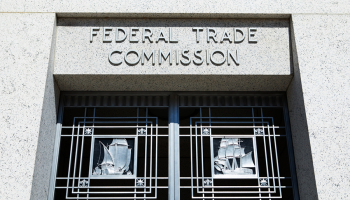Junk Fees are Causing Consumers to Switch Banks
Proposed rule to ban junk fees aims to remedy widespread concerns
- |
- Written by Banking Exchange staff

Americans are altering their buying habits and becoming more untrusting of financial institutions as awareness of junk fees grows, according to a report by technology company Wise.
Junk fees are hidden charges that inflate the final purchase price and distort market competition, including mandatory service fees and surprise fees that consumers only learn about after purchase.
They also include exploitative fees, such as bank overdraft fees that far exceed the cost of providing the service, and fraudulent ‘no-fee’ claims.
In October, the Federal Trade Commission (FTC) proposed a rule to prohibit junk fees, which would require businesses to include all mandatory fees when informing consumers of prices.
The new rule aims to ensure that consumers know exactly how much they are paying and allow them to easily compare providers to find the lowest price, to reduce the harm junk fees.
Wise’s report revealed the extent of the negative consequences of junk fees on consumers; 56% of respondents said junk fees are negatively affecting their financial situations.
Meanwhile, 51% reported junk fees have a negative impact on their emotional well-being.
In addition to facing monetary penalties for breaching the proposed new rule, financial institutions could also lose consumers if they do not address junk fees in financial transactions and international payments while their competitors comply.
Of the respondents, 76% said junk fees have influenced their decisions about which companies to do business with and 42% have changed or stopped using a specific company or brand due to junk fees.
Furthermore, 68% of consumers intend to or have changed the institution they use for international money transfers due to markups on exchange rates.
Junk fees have also led to increased mistrust in financial services, as 62% of consumers expressed reduced confidence in financial institutions.
Harsha Sinha, chief technology officer of Wise, said: “It’s no surprise that Americans are worried about junk fees. But while the focus has been on offenders from sparingly used experiences, like hotels or events, what clearly remains unaddressed are unexpected and hidden fees in the financial transactions and international payments consumers undertake daily,”
Tagged under Compliance, Consumer Credit, Bank Performance, Financial Research, Feature, Fair Lending, Fee Income, Profitability, Feature3, Customers, CFPB, Compliance/Regulatory, Consumer Compliance,













